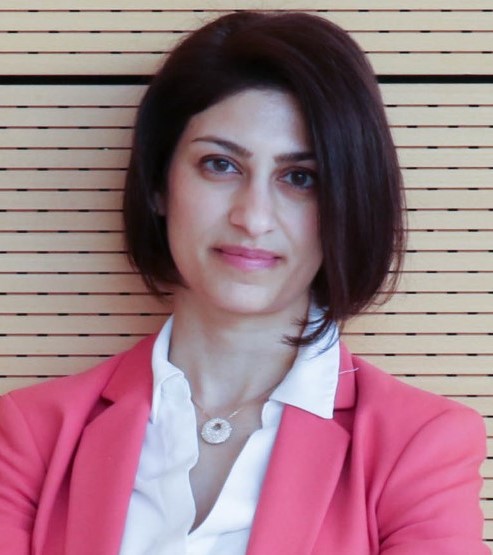Theoretical/Computational Nuclear Physics — Lattice Quantum Chromodynamics — Outreach Initiatives — Public STEM Engagement
Research Summary
Professor Constantinou’s research interests focus on aspects of Quantum Chromodynamics (QCD), specifically on the quantitative description of the properties of hadrons using numerical simulations of Lattice QCD. This is achieved by calculating key observables that characterize the structure of hadrons, such as the electromagnetic and axial form factors, and the nucleon momentum carried by the quarks and gluons. These calculations address open questions in hadron structure, including the spin content of the nucleon and the proton radius puzzle. The interpretation of the 3-dimensional tomography of hadrons is among her current interests.
Lattice QCD can provide input to ongoing experiments and offer predictions on observables that are not easily accessible experimentally or explore Physics beyond the Standard Model. The scientific goals of her research align with the future Electron-Ion Collider, a new facility to be built at Brookhaven National Lab. Calculations of fundamental nucleon properties may provide a link toward probing the hidden physics of dark matter.
Addressing the highly non-perturbative phenomena linked to QCD is deeply intertwined with High-Performance Computing. Thus, numerical simulations of Lattice QCD require enormous computational resources in supercomputing facilities. Constantinou’s group has acquired such resources at some of the largest computational facilities.
Education
Ph.D. Theoretical Computational Physics , University of Cyprus (2008)
BS Physics, University of Cyprus (2003)
Selected Publications
- Chiral-even axial twist-3 GPDs of the proton from lattice QCD, S. Bhattacharya, Phys.Rev.D 108 (2023) 5, 054501.
- 50 Years of Quantum Chromodynamics, F. Gross et al., Eur.Phys.J.C 83 (2023) 1125.
- Science Requirements and Detector Concepts for the Electron-Ion Collider : EIC Yellow Report, R. Abdul Khalek et al., Nucl.Phys.A 1026 (2022) 122447.
- Unpolarized and helicity generalized parton distributions of the proton within lattice QCD, C. Alexandrou et al, Phys.Rev.Lett. 125 (2020) 26, 262001
- A guide to light-cone PDFs from Lattice QCD: an overview of approaches, techniques and results, K. Cichy and M. Constantinou, Adv.High Energy Phys. 2019 (2019) 3036904.
Awards
- Italia-Eire Foundation Distinguished Teacher of the Year Award (2023)
- Selma Lee Bloch Brown Professorship (2020)
- US Department of Energy Early Career Award (2019)
Recent CV - LINK

